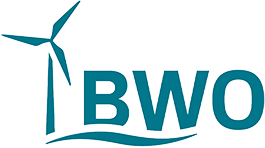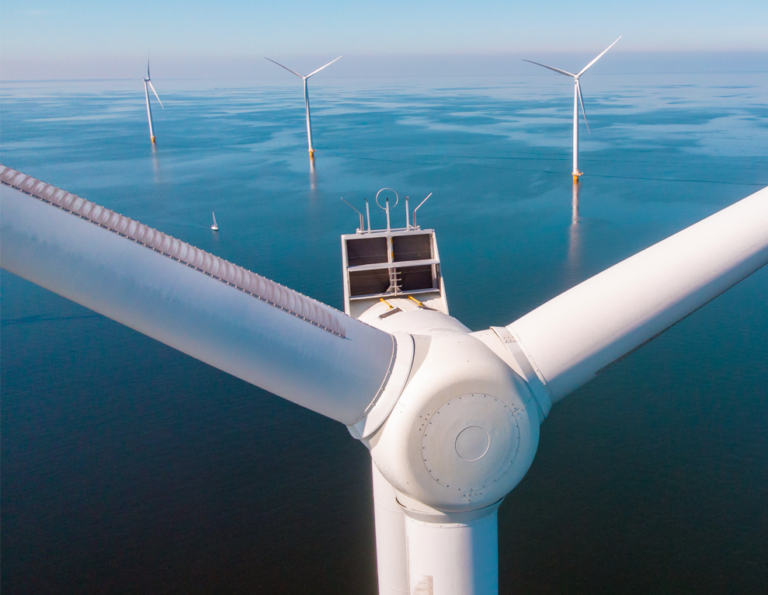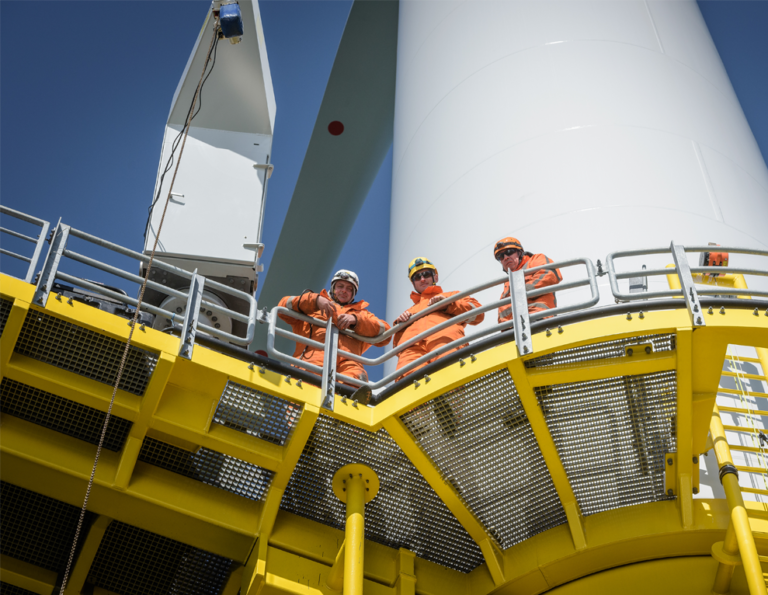A step in the right direction! — For more climate protection and added value in Germany as an industrial location
Change to WindSeeG: Increase in the expansion targets for offshore wind energy
The amendment to the WindSeeG, which is to be decided in the Bundestag today, points the way for the further expansion of offshore wind energy in Germany. The new expansion targets of 20 gigawatts (GW) by 2030 and 40 GW by 2040 not only create important planning security for the industry, but also make it clear that OWE will make a decisive contribution to achieving the climate goals and adding value in Germany. Against the background of the Corona crisis and the ongoing expansion boom, which as of today will drag on until 2025/26, this is an important economic signal for Germany and Europe.
In addition to the long-term perspective, the WindSeeG also regulates the tender design for future offshore wind projects. Already on Monday it became known from government circles that the originally planned second bid component for the next bidding round in autumn 2021 would be deleted from the bill. In the case of multiple zero-cent bids, the lot should first decide on a knockdown. Subsequently, after a renewed evaluation of the alternatives, the procedure for further offshore tenders will be determined. In recent months, the offshore sector, together with a broad alliance from industry, finance and science, has campaigned to replace the model of the second bid component proposed in the draft law with the so-called difference contract model. The latter is already being used in many other European countries and would thus contribute to the harmonization of the European financing framework for offshore wind projects. In addition, several independent studies show that contracts for differences compared to the second bid component would increase both the probability of realization and the cost efficiency of future offshore wind projects. The industry will therefore continue to advocate the introduction of contracts for difference.
The amendment to WindSeeG also addresses many important aspects of the synchronization of offshore wind and grid expansion as well as deadlines for the commissioning of offshore wind farms. The new WindSeeG is thus a first step towards leveraging the full potential of offshore wind energy for more climate protection and added value in Germany and Europe. However, some questions still remain unanswered. For example, there is still no conclusive concept for identifying other energy generation areas in which green hydrogen is to be generated from offshore wind in the future. The territorial sea regulation proposed by the industry to develop existing offshore wind potential is also not taken into account in the amendment to the law.
Statements on the amendment of the WindSeeG:
“The federal government made the right decision here and averted impending investment and realization risks for new offshore projects. Despite some good changes, the law leaves huge cost-cutting potential untapped and harbors unnecessary risks for investors. This must be improved in the next legislature. "
(Stefan Thimm, Managing Director of the Federal Association of Wind Farm Operators Offshore eV)
“It is good that Germany has put the idea of the negative bids on hold. The next step now would be to bury them and instead - like other European countries - rely on contracts for differences to finance offshore wind projects. Contracts for difference are beneficial to the government because the government not only pays out, but also receives money. And they are cheap for citizens because they reduce the costs of offshore wind energy in the long term. "
(Giles Dickson, CEO WindEurope)
“The increase in the expansion targets by 2040 gives the entire offshore wind energy industry the long-awaited planning and investment security. The current planning for spatial planning should take this contribution of offshore wind energy into account by designating corresponding priority areas. The long-term expansion prospects in the German North and Baltic Seas could even be as high as 2050 GW by 57, as a study by Fraunhofer IWES on behalf of the foundation found in 2017. "
(Andreas Wagner, Managing Director OFFSHORE WIND ENERGY Foundation)
“It is good that the procedure is not massively burdened by a second bid component. It is important to make Germany an attractive location for investments in renewable energies in the sum of the conditions. ”
(Matthias Zelinger, Managing Director VDMA Power Systems)
“The increase in German wind expansion capacities at sea to 20 gigawatts by 2030 and 40 gigawatts by 2040 is an important and long overdue step for the domestic offshore wind industry. Now politicians must make it possible to build new offshore wind farms as quickly as possible through an additional tender in 2021. In the future, we will also need additional wind power from the North and Baltic Seas for the production of 'green' hydrogen. Our innovative and high-performance supply chain must finally be fully utilized again in accordance with the capacity it has built up. "
(Heike Winkler, Managing Director WAB eV)
“The expansion of renewable energies is an essential building block for the transformation of industry. Chemical companies like Covestro are dependent on large quantities of green electricity at competitive prices in order to successfully continue their path towards climate neutrality. Not using the second component of the bid is therefore good news. We also welcome the fact that the important instrument of contracts for difference is still an option for the future. "
(Dr. Klaus Schäfer, Chief Technology Officer and member of the Executive Board, Covestro AG)
“In order to achieve climate goals, we need a rapid expansion of renewable energies. Offshore wind energy plays a key role with its high full load hours. The definition of the long-term expansion targets in the Wind at Sea Act is therefore an important step that creates reliability for climate protection and the industry. This now has to go hand in hand with securing the necessary areas in the North Sea while observing the concerns of marine nature conservation. For this it is necessary to reduce other uses such as fishing, raw material use and shipping and to hold a dialogue with the North Sea neighbors about the use of areas suitable for nature conservation outside the German EEZ. "
(Sascha Müller-Kraenner, Federal Managing Director of German Environmental Aid)
Contact person:
Head of Communications
Phone: + 49 (30) 28 444 650
Email: l.dettmer@bwo-offshorewind.de



